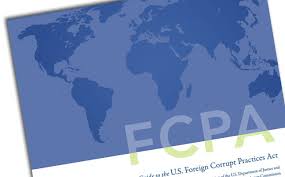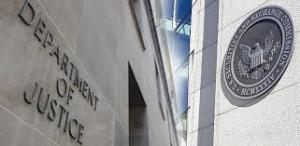Happy Birthday FCPA Guidance
 The FCPA Guidance turned two years old recently – November 14 to be exact. No one wrote about the milestone, nor has anyone praised the FCPA Guidance. To be the contrarian, I am writing to wish the FCPA Guidance a very happy birthday and to sing its praises.
The FCPA Guidance turned two years old recently – November 14 to be exact. No one wrote about the milestone, nor has anyone praised the FCPA Guidance. To be the contrarian, I am writing to wish the FCPA Guidance a very happy birthday and to sing its praises.
In honor of the FCPA Guidance’s birthday, I recently conducted a webinar on the FCPA Guidance. The webinar can be viewed on my You Tube channel here.
The FCPA Paparazzi and many commentators have ignored the FCPA Guidance. By doing so, they have revealed their own interest in preserving so-called uncertainty and vagueness around the FCPA, to the detriment of existing and potential clients, policymakers, and other stakeholders.
As a former federal prosecutor and a FCPA practitioner, I believe that the FCPA Guidance is (and will always be) an extraordinary document. No one can cite as comprehensive a document to explain a Department of Justice prosecution program. The drafters, who devoted significant time and effort, should be commended for their extraordinary work.
The FCPA Guidance does not have all the answers to everyone’s questions but it sets forth carefully the principles that DOJ and the SEC apply when analyzing issues under the law. DOJ and the SEC wrote the document objectively and with their important perspective as the agencies responsible for enforcement (and interpretation for Opinion Releases) of the law.
By explaining their approach, DOJ and the SEC gave the business community and FCPA practitioners’ important insights into how they address issues and principles they apply. In effect, if a future DOJ and/or SEC were to deviate from these principles, they will have to provide a very  compelling justification.
compelling justification.
Aside from this general observation, the FCPA Guidance has two very significant aspects.
First, and most importantly, in nine pages (pp. 56-65), the FCPA Guidance sets forth “Hallmarks of an Effective Ethics and Compliance Program.” That section by itself is worth the price of admission because it provides important direction on how the government reviews and assesses an ethics and compliance program. The section has had a dramatic impact on the ethics and compliance industry and provides a framework within which compliance professionals can develop effective compliance strategies.
Every corporate board and senior management team should be given the following paragraph from the FCPA Guidance (if necessary it should be printed in large type and bolded):
In appropriate circumstances, DOJ and SEC may decline to pursue charges against a company based on the company’s effective compliance program, or may otherwise seek to reward a company for its program, even when that program did not prevent the particular underlying FCPA violation that gave rise to the investigation.
To those who continue to advocate for a compliance program defense, which I believe is completely without merit and unworkable, the above-cited statement provides an adequate incentive for a company to develop and implement an effective ethics and compliance program.
Second, the FCPA Guidance provides important safe harbors for companies to use as models for building compliance strategies and solving specific problems that occur on a day-to-day basis. The FCPA Guidance contains numerous statements of proper versus improper conduct – those statements by themselves create limits on DOJ/SEC enforcement actions.
 More importantly, the FCPA Guidance includes hypotheticals and related explanations that can be directly used for justifying and analyzing specific solutions that a company may want to use for a particular fact situation.
More importantly, the FCPA Guidance includes hypotheticals and related explanations that can be directly used for justifying and analyzing specific solutions that a company may want to use for a particular fact situation.
Compliance staff needs to be familiar with each of these scenarios and understand the principles underlying the analysis. Each of these hypotheticals can be mined for important precedent and justification for good faith analysis of a compliance problem. In reality, these principles create safe harbors for company actions (or inaction).















